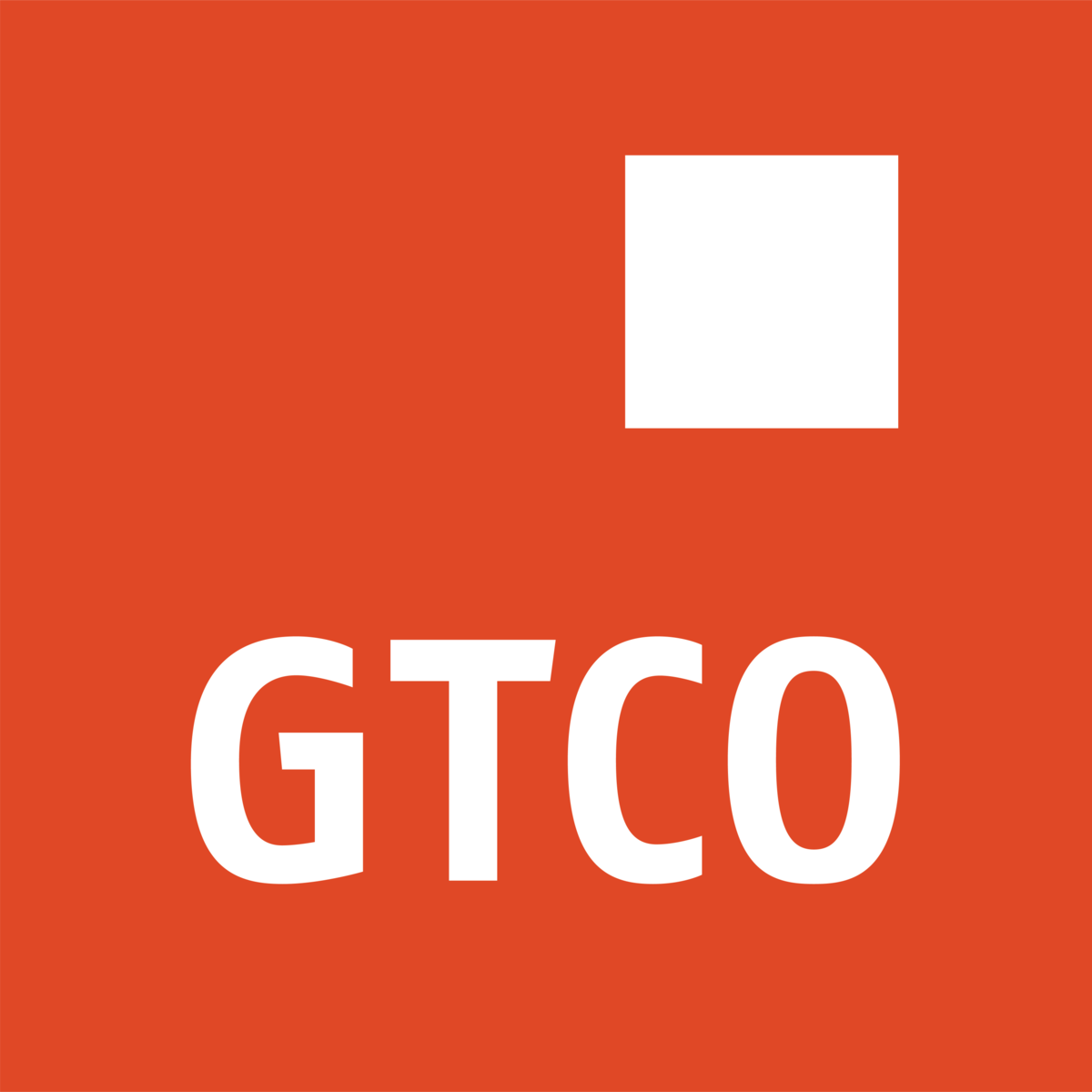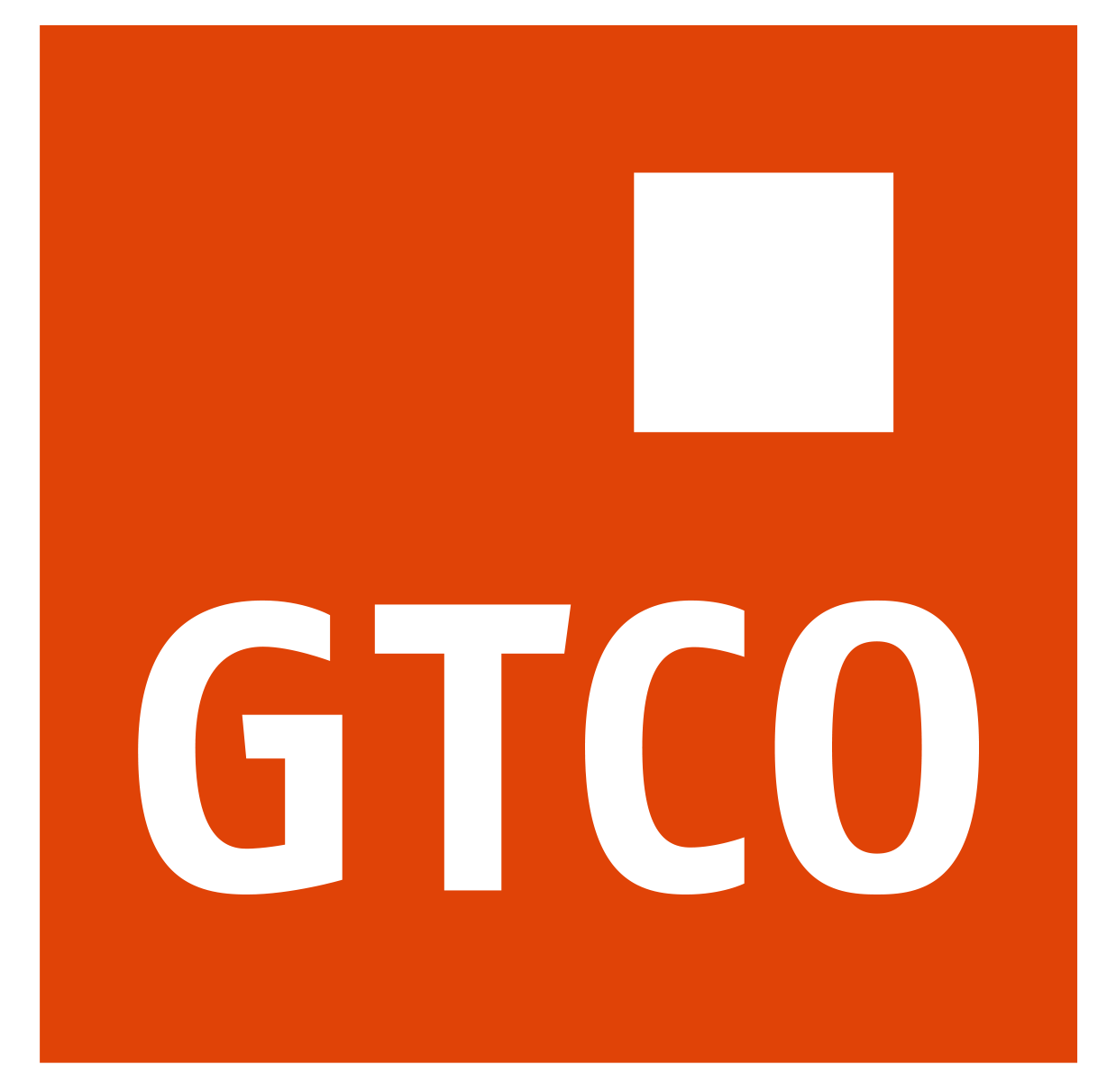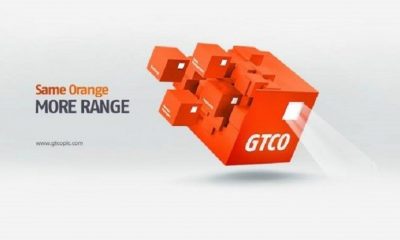Economy
GTCO Improves Pre-Tax Profit by 11.7% in Q3 2022

By Dipo Olowookere
One of the leading financial institutions in Nigeria, Guaranty Trust Holding Company (GTCO) Plc, the parent company of GTBank Limited, improved its pre and post-tax profits in the first nine months of 2022.
According to the unaudited results of the organisation released on Tuesday, the profit before tax (PBT) increased by 11.7 per cent to N169.7 billion from the N151.9 billion recorded in the same period of 2021, as the net profit grew for the first time in the past quarters by 0.8 per cent to N130.4 billion from N129.4 billion.
Also, the earnings per share (EPS), which measures the profitability of a single stock of the company, marginally grew in the period under review by 0.02 per cent to N4.55 versus N4.54 in Q3 of 2021.
A look at the top line of the results showed that the company reported a net interest income of N189.7 billion versus N162.9 billion in the preceding period as a result of an improvement in the interest income to N204.0 billion from N178.3 billion due to more earnings from loans to customers and Eurobond.
In the period under consideration, GTCO boosted its fee and commission by 18.2 per cent to N66.9 billion from N56.6 billion as the financial institution earned more from account maintenance charges, asset management fees, corporate finance fees, amid a marginal shortfall in e-business income and commission on Touch Points.
In the first nine months of the year, GTCO spent N30.5 billion on personnel expenses compared with N28.2 billion in the same period of last year due to an increase in wages and salaries to N29.6 billion from N27.3 billion.
In Q3 2022, the organisation said its net loan book increased by 2.2 per cent to N1.84 trillion from N1.80 trillion in December 2021, while the deposit liabilities rose by 6.4 per cent on a year-to-date basis to N4.39 trillion from N4.13 trillion.
The firm maintained strong capital ratios and asset quality as CAR, NPL ratio, and Cost of Risk (COR) closed at 20.7 per cent, 5.6 per cent, and 0.2 per cent in September 2022 from 23.8 per cent, 6.0 per cent, and 0.5 per cent in December 2021, respectively.
“The group’s 3rd quarter result reaffirms our strategy for long-term growth and underscores our capacity to deliver sustainable, strong performance despite the volatilities in our operating environment.
“We have also kept in focus our vision of supporting small and medium enterprises, specifically through our free business platforms, to help them stay in business and expand their offerings.
“With our non-banking businesses fully operational alongside our core banking subsidiary, we are well positioned to maximise our earnings potential going into the 4th quarter of the year,” the group CEO of GTCO, Mr Segun Agbaje, commented on the results.
“In creating a thriving financial services ecosystem, our goal is to offer great experiences to all who interact with our brand whilst continually enhancing access to innovative financial solutions for individuals and businesses across Africa.
“We are appreciative of all our customers and other stakeholders who are with us on this journey of building a truly global African financial services institution,” he added.
GTCO Plc is a fully-fledged financial services group with banking operations across West and East Africa and the United Kingdom as well as non-banking businesses in several key industry segments including payment, funds management, and pension fund management.
With N5.8 trillion in assets and over 28 million customers, the group remains one of the most profitable and best-managed financial services companies out of Nigeria providing commercial banking services and non-banking financial services across eleven countries.
Its leadership in the banking industry and efforts at empowering people and communities have earned it many prestigious awards over the years, including Best Banking Group in Nigeria and Most Innovative Bank in Nigeria at the 2022 World Finance Banking Awards.
It also retained its position as Africa’s Most Admired Financial Services Brand in the 2022 ranking of The Brand Africa 100: Africa’s Best Brands.
Economy
Champion Breweries Concludes Bullet Brand Portfolio Acquisition

By Aduragbemi Omiyale
The acquisition of the Bullet brand portfolio from Sun Mark has been completed by Champion Breweries Plc, a statement from the company confirms.
This marks a transformative milestone in the organisation’s strategic expansion into a diversified, pan-African beverage platform.
With this development, Champion Breweries now owns the Bullet brand assets, trademarks, formulations, and commercial rights globally through an asset carve-out structure.
The assets are held in a newly incorporated entity in the Netherlands, in which Champion Breweries holds a majority interest, while Vinar N.V., the majority shareholder of Sun Mark, retains a minority stake.
Bullet products are currently distributed in 14 African markets, positioning Champion Breweries to scale beyond Nigeria in the high-growth ready-to-drink (RTD) alcoholic and energy drink segments.
This expansion significantly broadens the brewer’s addressable market and strengthens its revenue base with an established, profitable portfolio that already enjoys strong brand recognition and consumer loyalty across multiple markets.
“The successful completion of our public equity raises, together with the formal close of the Bullet acquisition, marks a defining moment for Champion Breweries.
“The support we received from both existing shareholders and new investors reflects strong confidence in our long-term strategy to build a diversified, high-growth beverage platform with pan-African scale.
“Our focus now is on disciplined execution, integration, and delivering sustained value across markets,” the chairman of Champion Breweries, Mr Imo-Abasi Jacob, stated.
Through this transaction, Champion Breweries is expected to achieve enhanced foreign exchange earnings, expanded distribution leverage across African markets, integrated supply chain efficiencies, portfolio diversification into high‑growth consumer beverage categories, and strengthened presence in the RTD and energy drink segments.
The acquisition accelerates Champion Breweries’ transition from a regional brewing business to a multi-category consumer platform with continental reach.
Bullet Black is Nigeria’s leading ready-to-drink alcoholic beverage, while Bullet Blue has built a strong presence in the energy drink category across several African markets.
Economy
M-KOPA Nigeria Plans Expansion to Edo, Others After N231bn Credit Milestone

By Adedapo Adesanya
Emerging market fintech firm, M-KOPA, has announced plans to deepen its reach in Nigeria to the South South and South East regions, starting with Edo this year, after providing N231 billion in credit to over 1 million customers in the country.
The firm released its first Nigeria-focused Impact Report, which showed that Nigeria is M-KOPA’s fastest-growing market and fastest to reach the milestone.
Since its foray into the Nigerian market in 2019, M-KOPA has been working to dismantle barriers to financial inclusion by providing flexible smartphone financing and digital financial tools that align with how people in the informal economy earn and manage their money.
It operates in six states in the country, including Lagos, Ogun, and Oyo, among others.
The report highlights the company’s contribution to income generation, digital inclusion and economic opportunity for Every Day Earners across the country.
The report showed that M-KOPA has enabled 290,000 first-time smartphone users, while 56 per cent of agents accessed their first income opportunity through the platform.
It showed high income and livelihood gains among its users, with about 77 per cent of customers leveraging smartphones or digital loans obtained through the platform to generate income, indicating that access to financed devices is directly supporting micro-entrepreneurial activity and informal sector productivity.
Furthermore, 75 per cent of users report higher earnings since gaining access to M-KOPA’s services, suggesting measurable improvements in personal revenue streams. On the distribution side, 99 per cent of agents disclose increased earnings, reflecting positive spillover effects across the company’s value chain.
In addition, 81 per cent of long-term customers state that their household expenses have improved, pointing to enhanced financial stability and better consumption smoothing over time.
Speaking on the report, Mr Babajide Duroshola, General Manager, M-KOPA Nigeria, said, “Nigeria represents extraordinary potential, and we’re proud that it has become M-KOPA’s fastest-growing market. Our Impact Report shows that when Every Day Earners gain access to the right digital and financial tools, they use them to create stability and long-term progress for their families. This is about access that unlocks opportunity and sustained prosperity.”
On its expansion plans Nigeria-wide, the M-KOPA helmsman said, “Many of the states we are considering are already similar to the ones we are currently in proximity… So, there is proximity and similarity between these states, and that’s what we are going to do, starting with Edo.”
He noted that as M-KOPA Nigeria continues to expand, the focus remains on ensuring more everyday earners gain access to the digital and financial tools they need to build resilient, prosperous futures in Nigeria’s rapidly digitising economy.
Economy
Tinubu Okays Extension of Ban on Raw Shea Nut Export by One Year

By Aduragbemi Omiyale
The ban on the export of raw shea nuts from Nigeria has been extended by one year by President Bola Tinubu.
A statement from the Special Adviser to the President on Information and Strategy, Mr Bayo Onanuga, on Wednesday disclosed that the ban is now till February 25, 2027.
It was emphasised that this decision underscores the administration’s commitment to advancing industrial development, strengthening domestic value addition, and supporting the objectives of the Renewed Hope Agenda.
The ban aims to deepen processing capacity within Nigeria, enhance livelihoods in shea-producing communities, and promote the growth of Nigerian exports anchored on value-added products, the statement noted.
To further these objectives, President Tinubu has authorised the two Ministers of the Federal Ministry of Industry, Trade and Investment, and the Presidential Food Security Coordination Unit (PFSCU), to coordinate the implementation of a unified, evidence-based national framework that aligns industrialisation, trade, and investment priorities across the shea nut value chain.
He also approved the adoption of an export framework established by the Nigerian Commodity Exchange (NCX) and the withdrawal of all waivers allowing the direct export of raw shea nuts.
The President directed that any excess supply of raw shea nuts should be exported exclusively through the NCX framework, in accordance with the approved guidelines.
Additionally, he directed the Federal Ministry of Finance to provide access to a dedicated NESS Support Window to enable the Federal Ministry of Industry, Trade and Investment to pilot a Livelihood Finance Mechanism to strengthen production and processing capacity.
Shea nuts, the oil-rich fruits from the shea tree common in the Savanna belt of Nigeria, are the raw material for shea butter, renowned for its moisturising, anti-inflammatory, and antioxidant properties. The extracted butter is a principal ingredient in cosmetics for skin and hair, as well as in edible cooking oil. The Federal Government encourages processing shea nuts into butter locally, as butter fetches between 10 and 20 times the price of the raw nuts.
The federal government said it remains committed to policies that promote inclusive growth, local manufacturing and position Nigeria as a competitive participant in global agricultural value chains.
-

 Feature/OPED6 years ago
Feature/OPED6 years agoDavos was Different this year
-
Travel/Tourism10 years ago
Lagos Seals Western Lodge Hotel In Ikorodu
-

 Showbiz3 years ago
Showbiz3 years agoEstranged Lover Releases Videos of Empress Njamah Bathing
-

 Banking8 years ago
Banking8 years agoSort Codes of GTBank Branches in Nigeria
-

 Economy3 years ago
Economy3 years agoSubsidy Removal: CNG at N130 Per Litre Cheaper Than Petrol—IPMAN
-

 Banking3 years ago
Banking3 years agoSort Codes of UBA Branches in Nigeria
-

 Banking3 years ago
Banking3 years agoFirst Bank Announces Planned Downtime
-

 Sports3 years ago
Sports3 years agoHighest Paid Nigerian Footballer – How Much Do Nigerian Footballers Earn

















